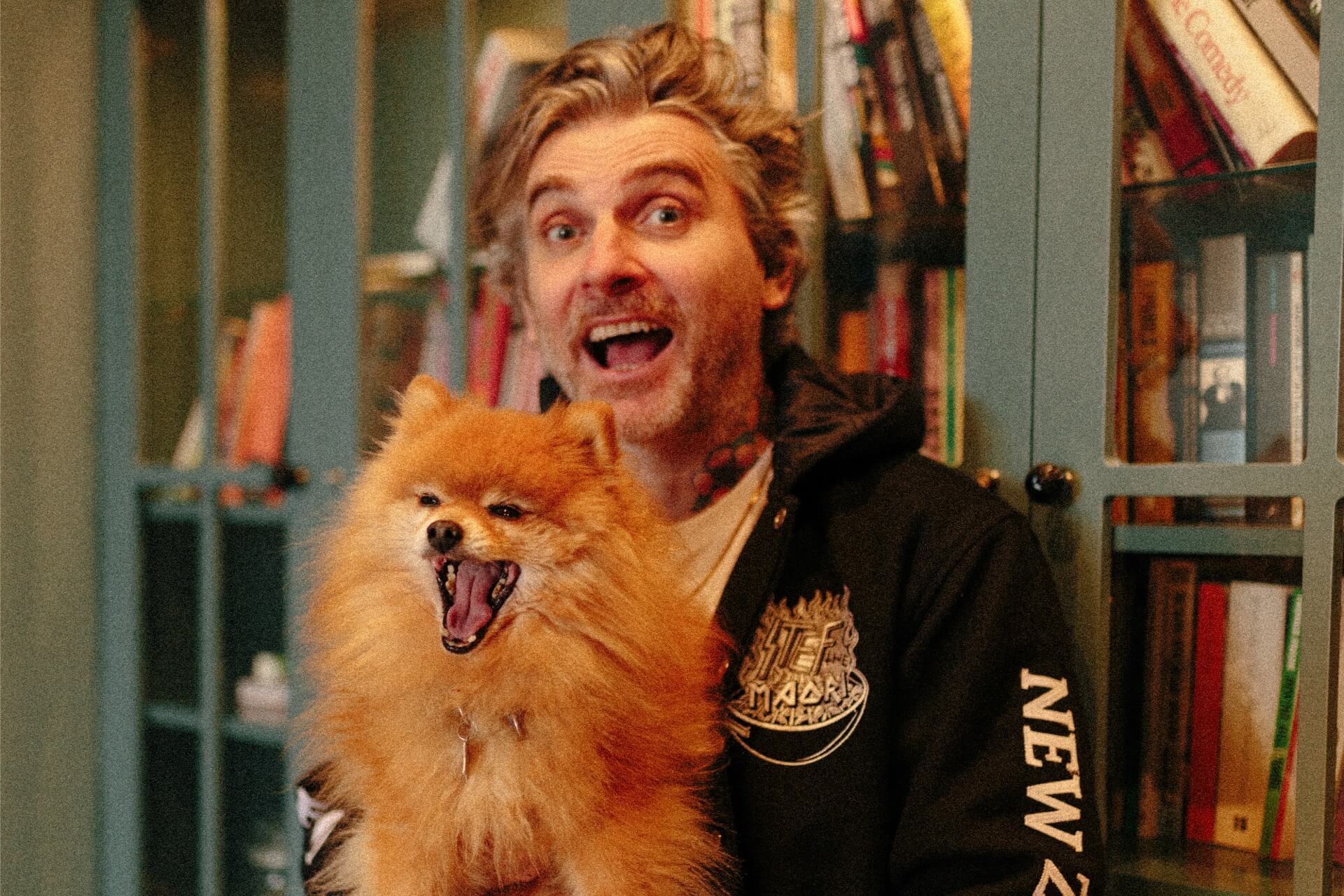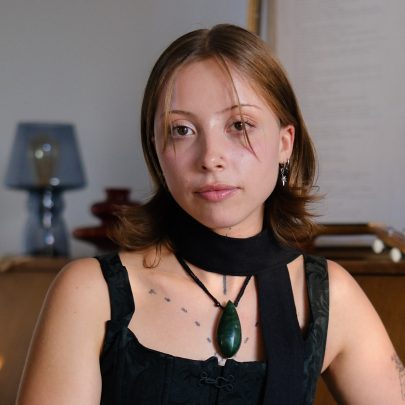Jan 24, 2023 Books
When we were both young travellers in the 90s DIY hardcore punk scene, Dominic Hoey had a theory: put any three people together in a band and they’ll come up with at least one good song. There was an optimism to the idea that I loved — that we all have one good song inside us — but the dark side to that moon was daunting: almost none of those bands will be able to make a good album; most of us have just that one song.
Books are harder to write than songs — you can’t write a few vague lines over a couple of catchy melodic ideas and be done in 25 minutes — but some version of that idea still holds. Give someone some basic tools and enough time and they could probably write a first novel. Everyone has at least one story to tell. Even the most boring people are actually quite interesting if you (or, in this case, they) dig deep enough. But to write two good novels? Almost impossible, statistically speaking. Only a writer can do that.
Hoey is, in many ways, one of the least likely people to have recently released their second novel (after three books of poetry, two one-person theatre shows, an award-winning short story and, seemingly, more live readings than all the other writers in Aotearoa). Dyslexic, he couldn’t read or write until he was eight or nine; his childhood glue ear led to a speech impediment. He went to a high school where attendance was optional and punishments were voted on by the students. He didn’t go to university until he was in his 30s. For the 25-ish years I’ve known Hoey, he wore his (exaggerated) lack of talent as a badge of honour.
“I literally can’t think of one gifted person I know that’s done anything with it,” he says, over coffee in St Kevins Arcade. “Because it’s too easy for them. I’m even getting that thing now, with some of the things I’m good at, like, ‘Oh, it’s easy’, and I have to remind myself, ‘Motherfucker, five years ago you couldn’t even do that.’”
He now regards his learning disability as having been an asset when it came to teaching himself to become a writer. Whether he’s talented or not (or whether innate talent even exists), he’s used his self-identified lack of it as fuel. He has always been one of the most driven and hardworking people I’ve known — never towards a traditional career or to a job, but always to whatever creative craft he was pursuing at the time. “When you’re learning-disabled you have to have that [drive] or you can’t do it,” he says. “My mum, who’s learning-disabled too, says it takes 10 times as long to get something, but once we get it we understand it in a way neurotypical people don’t. Because you have to learn every angle of it. It’s not like people who are like, ‘I have a flair for prose but my characterisation isn’t that good, I’ll just work on that’. I have to work on every element to get it into my brain.”
Hoey learnt to write by writing — first raps, then poems, then plays and novels — and by looking things up on the internet, reading countless pointers on plot, character development, structure; absorbing what was useful and disregarding the rest. He’d always wanted to write a novel (he says an ex-girlfriend broke out laughing when he told her he thought he could), so applied for a residency in Iceland where recipients got three months to work on any creative project, with no requirements or expectations for any particular outcome. “It wasn’t until I sat down to write the first one that I realised I had no idea what the fuck I was doing,” he says. “But all those albums I made, it’s not like anyone asked me to make those. If you just go and do something like that and a couple of them are successful, you think, ‘Maybe I can do these other things, too’.”
That first novel — called Iceland but set in Grey Lynn — was about broke artists struggling to get by in a rapidly changing Auckland. It was the novel Hoey already had inside him; all it took was the tools and the time to get it out. The book was well reviewed and it sold — Hoey, using the skills and networks he’d established in the music world, toured like a musician, reading excerpts and poetry in bars and selling books afterwards as if they were tour merch. The book became a bestseller, and as soon as he could, he set out to write a second, saving up enough money to rent a house in Port Chalmers for two months of uninterrupted writing. “I found it easier as I knew what I was doing a lot more,” he says. “The plays that I wrote really helped me with the novel because I had to learn structure and arc and all of that. You can’t really bluff it in the same way you can in a book. If you lose people, they’re right there.”
He also learnt a lot from Iceland. He’d wanted to be so true to the source material — that of his own creative subculture and the neighbourhood he grew up in — that, he felt, the book suffered from detail. “It’s not that it was autobiographical, but it was based in a world where I was from,” he says. “I got hung up on the truth. I’d be hung up on ‘this street connects to this street’ and now I’m like, it doesn’t matter. It’s fiction.”
The result, Poor People With Money — following the travails of Monday, a kickboxer trying to drug-deal her way into the money she needs to get to a training camp in Thailand — isn’t a million miles away. It still takes place in broke Auckland (though the story moves up north) and touches on subcultures — but it is more consciously fiction, more plot-driven and fl owing. You read it with the wind behind your back, the pages turning effortlessly. “It’s a world that I was more adjacent to than right in the centre of, which is a lot easier to write about,” Hoey says. “I felt pressure to get it right but it wasn’t like Iceland where people were like ,‘Is this me?’. And I got to do research so I went up north, I went into kickboxing gyms, I got people to help me with the te reo Māori in there. So it was much more of a collaborative thing, whereas I’m not going to research a bunch of loser musicians from Grey Lynn. I don’t need to research that!”
When he was finished, Hoey gave it to a couple of people who actually live in the worlds depicted in the book, and when the first one finished it and loved it, “That’s when I was like, ‘I did it. I actually fucking pulled it off .’ Because he would have told me if I hadn’t.”
It’s the people from those worlds — people who don’t often buy a lot of local literature — who have made Hoey’s Dominic Hoey career possible. He works as hard or harder than any writer to get his work to people — travelling the country, playing dive bars and indie music venues, writing poems live and on demand, incessantly Instagramming new work, sketches, excerpts and writing tips. (Hoey also runs How To Write Good, an online writing course “for people who didn’t like school”.) “It’s so much easier selling books than CDs,” he says. “People want books! People are not going to go to the writers’ festivals but if you bring it to them — doing shows at the Wine Cellar or the equivalent venues around the country — we sold thousands of books.”
And with his first book out through Penguin Books (Iceland was published by Steele Roberts; his previous poetry book, I Thought We’d Be Famous, by Dead Bird Books, the publisher he co-founded with Samuel Walsh), he’s added mainstream retail accessibility to his arsenal. “So many people have been messaging me, ‘Bro, I haven’t read a book in 10 years but I read your book because it was at The Warehouse’ or whatever. And it’s not just me, it’s the accessibility.”
Still, even with a novel out with one of the biggest fiction publishers in the world, Hoey still feels like an outsider. In New Zealand, you could be excused for assuming that you need a degree from the International Institute of Modern Letters in Wellington to be accepted into the local literary establishment. “I still get rejected by CNZ [Creative New Zealand]; I still get put in the shitty spots at the writers’ festivals,” he says. “I wish CNZ was like, ‘Here’s all this money’, and I actually got to talk about craft at the writers’ festivals, but they always put me in this shit that’s in a shoe shop for the urban gritty poetry night. I’m a fucking middle-aged man with a hybrid! Can’t I just talk about my book?”
Poor People With Money (Penguin Books, $37) is out now.
–






